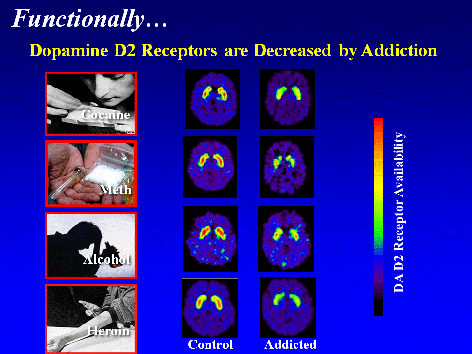For much of the past century, scientists studying drug abuse labored in the shadows of powerful myths and misconceptions about the nature of addiction. When scientists began to study addictive behavior in the 1930s, people addicted to drugs were thought to be morally flawed and lacking in willpower. Those views shaped society’s responses to drug abuse, treating it as a moral failing rather than a health problem, which led to an emphasis on punishment rather than prevention and treatment. Today, thanks to science, our views and our responses to addiction and other substance use disorders have changed dramatically. Groundbreaking discoveries about the brain have revolutionized our understanding of compulsive drug use, enabling us to respond effectively to the problem.

As a result of scientific research, we know that addiction is a disease that affects both the brain and behavior. We have identified many of the biological and environmental factors and are beginning to search for the genetic variations that contribute to the development and progression of the disease. Scientists use this knowledge to develop effective prevention and treatment approaches that reduce the toll drug abuse takes on individuals, families, and communities.
Despite these advances, many people today do not understand why people become addicted to drugs or how drugs change the brain to foster compulsive drug use. This booklet aims to fill that knowledge gap by providing scientific information about the disease of drug addiction, including the many harmful consequences of drug abuse and the basic approaches that have been developed to prevent and treat substance use disorders. At the National Institute on Drug Abuse (NIDA), we believe that increased understanding of the basics of addiction will empower people to make informed choices in their own lives, adopt science-based policies and programs that reduce drug abuse and addiction in their communities, and support scientific research that improves the Nation’s well-being.
Nora D. Volkow, M.D.
Director
National Institute on Drug Abuse
Hi! I am a robot. I just upvoted you! I found similar content that readers might be interested in:
https://www.drugabuse.gov/publications/drugs-brains-behavior-science-addiction/preface
Good catch!
@terencehill888: It would have been better to write a single paragraph of your own and then give the link to the news. Believe me, people around here prefer that way.
Thanks for your consideration!
Not indicating that the content you copy/paste is not your original work could be seen as plagiarism.
Some tips to share content and add value:
Repeated plagiarized posts are considered spam. Spam is discouraged by the community, and may result in action from the cheetah bot.
Creative Commons: If you are posting content under a Creative Commons license, please attribute and link according to the specific license. If you are posting content under CC0 or Public Domain please consider noting that at the end of your post.
If you are actually the original author, please do reply to let us know!
Thank You!
Plagiarizm.
and you are a cocksucker
No.
yes you are you plagarizm asshole
I have planished you. Don't cry very more. Plagiarism is very big sin.
shut your mouth you small children i can copy every article and paste them everywhere without drama!°
Could you use comas & dots in your texts? You need my help, my little student.
I remove flag from this post. Be careful in future.